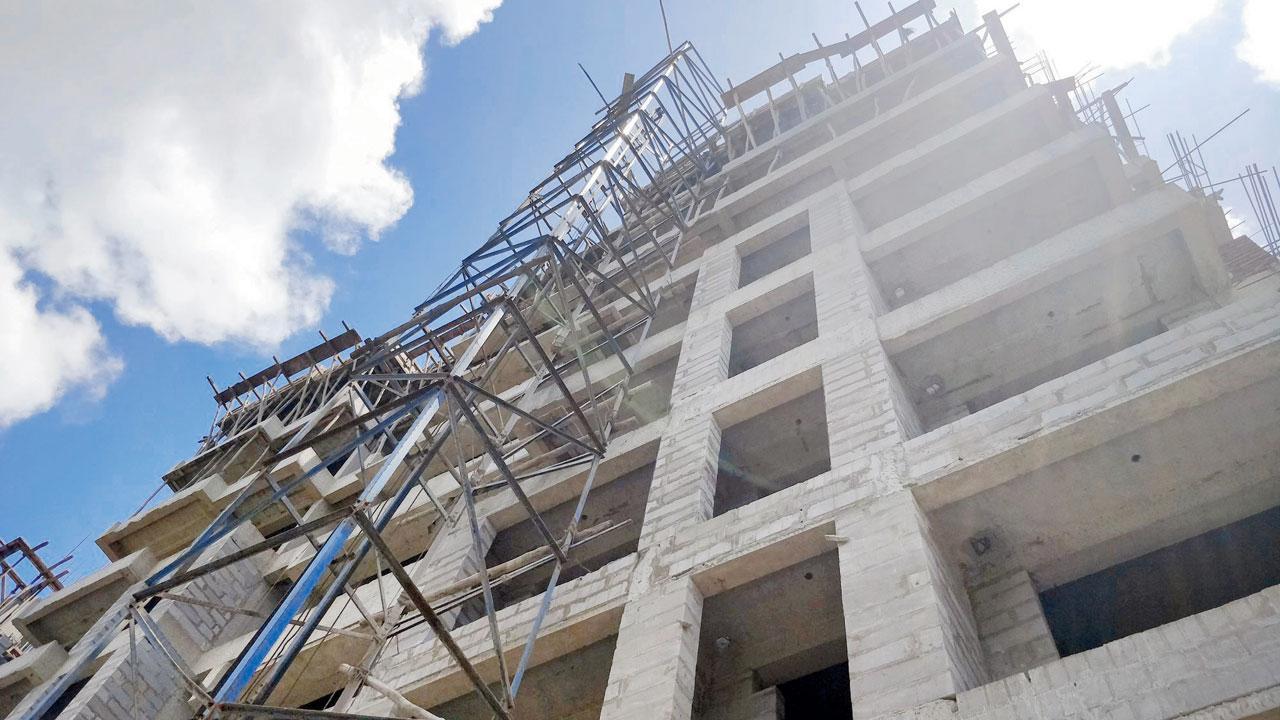Legal experts say the landmark judgment by the Supreme Court will deter developers from challenging RERA orders and delaying resolution, thus bringing relief to flat buyers

The Supreme Court has directed developers to deposit either full compensation and interest imposed by the regulatory body or at least 30 per cent of the penalty as a pre-condition to challenging any RERA order. Representation pic
Developers now may have to think twice before challenging Real Estate Regulatory Authority (RERA) orders as the Supreme Court has directed that developers should either deposit full compensation and interest imposed by the regulatory body or at least 30 per cent of the penalty before they can challenge the order before the appellate authority. Professionals practising in MahaRERA welcomed the SC decision and said the order has hit the nail on the head by ensuring that flat owners get justice and do not fall prey to the delaying tactics often adopted by the builders by challenging such orders.
CA Ramesh Prabhu, founder chairman of MahaSEWA (Maharashtra Societies Welfare Association), said, “This is a landmark and welcome decision passed by the Supreme Court. Now the promoters will think many times before the appeal is filed. Now they may decide to file the appeal if they are sure of winning. Appeals by promoters will come down drastically. The judgement has put all the doubts to rest. Even the appellate tribunal will not be able to proceed to admit the appeals of the promoter unless 100 per cent of the amount is deposited.”
“However, if the allottees are aggrieved against the order of authority or adjudication officer, the appeal may be filed without depositing any amount. This also becomes a great deterrent to the promoters to file the appeal. Therefore, now we find most of the promoters try to settle the dispute out of court as soon as complaints are filed,” Prabhu said.
Solicitor Stuti Galiya said, “It is a well known fact that builder lobbies have abundant legal and financial resources and they often create separate legal budgets for each project. Hence, it is seen that most of the time, developers/builders do not take the legal action against them seriously, as they believe that they could easily get through by stretching the matter in various forums for years and years. This often results in justice being denied to flat owners as they often are not able to fight such a long legal battle, for financial and time constraints. This judgement has hit the nail on the head by ensuring that flat owners get justice and do not fall prey to the delaying tactics. This is certainly a positive and welcome move in the right direction."
Advocate Godfrey Pimenta, who practises in MahaRERA, said, “The Supreme Court judgement only endorses section 40(1) of the Real Estate (Regulation and Development) Act, 2016 that the amount invested by the allottees, which is often their life savings, along with the interest thereon as quantified by the regulatory authority or the adjudicating officer, can be recovered as arrears of land revenue by them from the builders. However, the practical difficulty faced by the flat buyers is the laborious process in attaching the properties of the developer.”
Advocate Vinod Sampat, founder president of Flat Users Residents Welfare Association, said, “The said judgement is a big boost to flat purchasers. Builders who delay construction or the project for one reason or other will have to refund the principal amount and interest to defaulted flat buyers. It is common knowledge that delaying tactics are adopted by both builders and as well as their advocates. The approach of the court to insist on the deposit before accepting an appeal is a welcome move.”
The case
Newtech Promoters and Developers Private Limited v State of Uttar Pradesh and others is a case where the flat buyer filed a complaint against the developer for non-compliance of possession of flat within the stipulated time period, as per the agreement. The complainant had booked a flat by paying a consideration of Rs 28.21 lakh on October 4, 2012, and the possession, as per the agreement, was to be given by 2015. However, when the developer failed, the buyer moved the complaint demanding refund of Rs 28.21 lakh with interest.
The state RERA authority found the complainant’s claims to be true and accordingly on April 5, 2019 passed an order directing the developer to refund the principal amount of Rs 28.21 lakh along with interest of Rs 19.82 lakh. The developer, instead of executing the RERA order, moved a writ petition challenging the same including the recovery certificate dated September 8, 2020 holding it to be without jurisdiction as it has been passed by a single member of RERA. The developer claimed the single member had no jurisdiction to pass such an order. However, the SC set aside the developer’s plea and passed the landmark verdict.
 Subscribe today by clicking the link and stay updated with the latest news!" Click here!
Subscribe today by clicking the link and stay updated with the latest news!" Click here!










